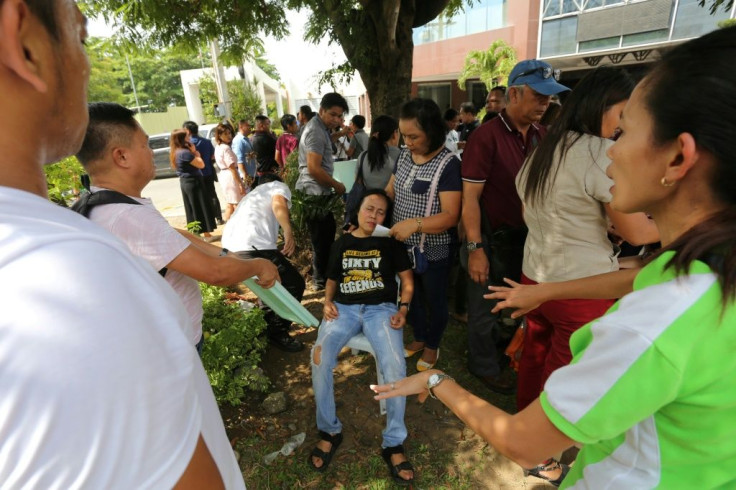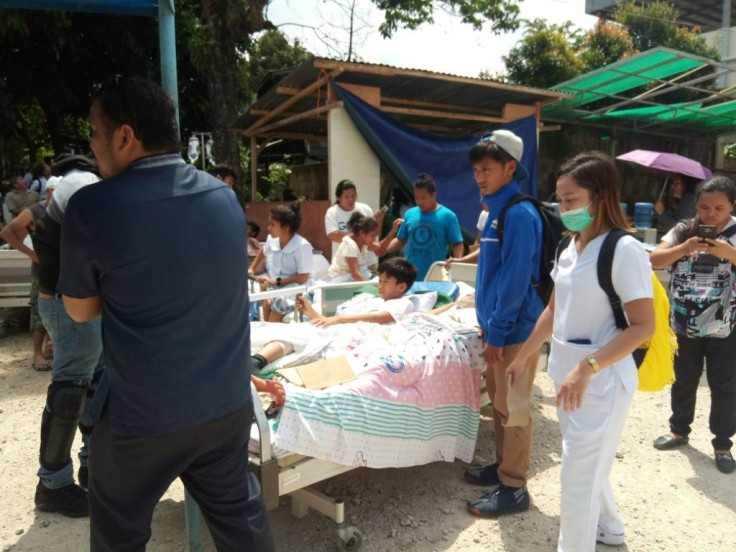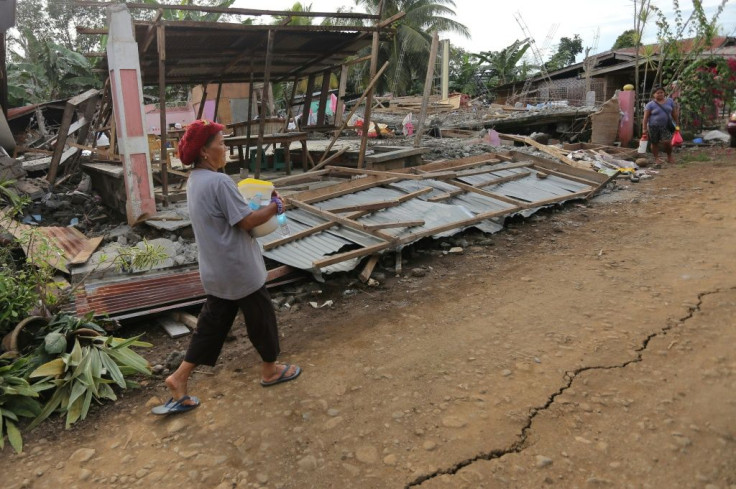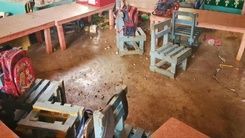Strong Quake Kills Six In South Philippines

A powerful earthquake struck the southern Philippines Tuesday, killing six people, cracking buildings and injuring dozens in a region still reeling from a previous deadly tremor.
Terrified locals ran into the streets after the 6.6-magnitude quake, which hit the island of Mindanao as schools and offices opened for the day.
The shaking lasted up to a minute in some areas, damaging homes, multi-storey buildings and classrooms in a region where hundreds are still displaced by a quake that killed at least five earlier this month.
The Philippines suffers regular tremors as part of the Pacific "Ring of Fire", an arc of intense seismic activity that stretches from Japan through Southeast Asia and across the Pacific basin.

A teenage boy was crushed by a falling wall as he tried to escape his school in Magsaysay, the town spokesman told AFP. Though other students were injured in a "stampede" to escape the building, they survived.
Rock and landslides unleashed by the violent shaking killed four others, while a collapsed wall crushed a man, authorities said.

At least 50 people were hurt by falling debris, including some seven pupils and teachers hurt escaping their collapsed elementary school.
Locals were awed by the power of the quake, which was shallow and thus potentially more destructive.

"Buildings were not just moving, they were swaying," Gadi Sorilla, a doctor at a hospital in Tulunan, a town about 25 kilometres (15 miles) from the epicentre told AFP.
"I asked God for help," he said, adding the hospital had quickly received about 10 patients, some with head injuries.

Hundreds still displaced
Tulunan's mayor Reuel Limbungan said the local municipal hall had been heavily damaged and authorities had received "lots of reports of injuries".
Rescue teams worked until dark on Tuesday to assess the damage to the region, where electricity and phone services were knocked out in some areas by the power of the quake.
The US Geological Survey said the initial 6.6 magnitude quake was followed by a number of smaller shakes, including one measuring 5.8.
The continuing tremors were causing anxiety on the ground, with people refusing to go back inside buildings for fear of being caught in any resulting collapse.
Schools across the area have been shuttered as a precaution.
The area is still suffering the effects of a 6.4-magnitude quake that hit less than two weeks ago, killing at least five people and damaging dozens of buildings.
Residents fled homes across the Mindanao region and a mall caught fire in the city of General Santos shortly after the quake struck on October 16.
"We still have 570 individuals in evacuation centres (from the previous quake) and with this quake, we are expecting more evacuees," said Zaldy Ortiz, an officer with a local emergency rescue team.
High-rise structures in the capital swayed after the April quake, leaving some with large cracks in their walls.
© Copyright AFP 2024. All rights reserved.





















